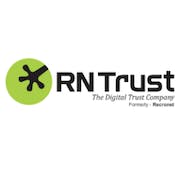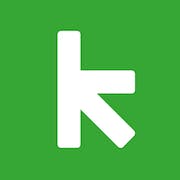Looking for the best sales engagement platform software? Check out our comprehensive buyers guide now which will help you find the perfect solution for your sales team.
Are you looking to level up your sales outreach game with the latest sales engagement platform software? Well, look no further. As modern sales teams continue to adapt to a remote workforce, sales engagement platforms (SEPs) offer tools to help keep your sales reps more productive and efficient than ever. Choosing the right SEP tool can be an overwhelming task, with a seemingly endless array of vendors and features to consider. This buyer's guide will help you navigate the ins and outs of the SEP landscape, and ultimately make an informed decision that will set your sales team up for success. Whether you're a small business or a large enterprise, this guide will provide you with valuable insights and information to help you make the right choice for your organization's unique needs.
What is sales engagement platform software?
This is a type of technology that enables sales teams to engage with customers and prospects more effectively, efficiently, and at scale. It is an all-in-one platform that makes it easy for sales teams to manage their outreach efforts through personalized email, social media interactions, phone calls, and other communication channels.
Common use cases for this sales platform include:
- Lead generation and prospecting: Using it allows sales teams to quickly identify and connect with potential customers who have expressed interest in their products or services.
- Sales process automation: By automating repetitive tasks such as email follow-ups and appointment scheduling, sales teams can save time and focus on other high-priority tasks.
- Pipeline management and forecasting: An engagement tool can provide valuable insights into the effectiveness of outreach efforts, enabling teams to make data-driven decisions about where to focus their efforts.
- Account-based marketing: Sales teams can use it to personalize outreach efforts and tailor messaging to specific accounts or decision-makers.
- Onboarding and training: Itcan be used to onboard and train new sales team members, providing a centralized platform for training materials and best practices.
A wide range of companies across various industries use sales engagement technology. These companies include:
- B2B sales organizations that operate in complex or competitive markets
- Small and medium-sized businesses looking to scale their sales efforts
- Startups looking to build a sales pipeline from scratch
- Sales teams that prioritize relationship-building and personalization as part of their outreach efforts
What are the advantages of using a sales engagement platform?
In today's business climate, sales teams need every possible advantage to succeed. A sales engagement program comes with some key benefits that businesses of all sizes can enjoy:
- Enhanced sales productivity: A sales engagement tool can help reps automate repetitive tasks and free up more time for them to focus on selling activities such as prospecting, outreach, and follow-ups. This increased productivity enables sales teams to handle more leads and deals, leading to higher revenue. According to a study conducted by Forrester, companies using sales engagement platforms can show a 329% return on investment over a span of 3 years.
- Improved sales performance: It provides analytics and performance metrics that help sales reps track their progress and understand what works well and what needs improvement. They can use this information to optimize their sales strategies and tactics, leading to better performance and higher rates of successful deals.
- Increased personalization: With the help of sales engagement technology, companies can customize their sales outreach efforts to a greater degree. By tailoring their messaging and engaging prospects with personalized content, businesses can increase engagement rates and conversions. With 92% of customers expecting a personalized experience, sales campaigns must be customized for outreach and to optimize this strategy incorporating a sales engagement platform with robust personalization capabilities becomes an added advantage.
- Better collaboration: It streamlines communication and collaboration between sales reps, managers, and other team members. It provides a centralized platform that enables everyone to access real-time information about leads and deals, collaborate on documents, and share feedback, leading to better collaboration and information sharing.
- More efficient sales process: Sales engagement software uses automation and AI-powered tools to seamlessly integrate sales outreach and follow-up. This results in a more streamlined sales process, which helps reps move leads more quickly through the funnel, and close deals faster.
10 key features of sales engagement platform software
There are several common features that most SEP software solutions include. In this section, we will highlight and list 10 of these features.
1. Automated outreach:
SEP software streamlines the outreach process by automating repetitive tasks like sending emails and making calls. This saves time and allows sales reps to focus on more important tasks.
2. Lead and contact management:
It provides a centralized location for managing leads and contacts. This helps sales reps keep track of their interactions with prospects and ensures that no leads slip through the cracks.
3. Activity tracking:
The software tracks all activities performed by sales reps, including emails sent, calls made, and meetings scheduled. This data is valuable for reporting and performance analysis.
4. Personalized messaging:
It allows sales reps to craft personalized messages that are tailored to each prospect's unique needs. This helps increase engagement and build stronger relationships with prospects.
5. Multi-channel communication:
An SEP tool supports multiple communication channels such as email, phone, and social media. This enables sales reps to reach prospects through their preferred communication method.
6. Sales analytics:
SEP software provides detailed analytics on sales activity, pipeline health, and performance. This helps sales managers make data-driven decisions and optimize their sales processes.
7. Sales cadence management:
This powerful tool allows sales managers to create and manage sales cadences, which are a series of touchpoints designed to move prospects through the sales funnel. This ensures that prospects are engaged at every stage of the buying process.
8. Collaboration tools:
It facilitates collaboration between sales reps and other departments such as marketing and customer success. This helps ensure that everyone is aligned and working towards the same business goals.
9. Integrations:
An SEP solution integrates with other tools such as CRM software, marketing automation tools, and sales enablement platforms. This creates a seamless workflow and prevents data silos. Nearly 80% of sales teams recognize the importance of integrating their video creation and sharing tools with sales engagement technology.
10. Customization:
SEP technology allows users to customize their workflows and processes to fit their unique business needs. This provides flexibility and ensures that the software is tailored to the organization's specific requirements.
What to consider when adopting a sales engagement platform tool?
Purchasing a sales engagement platform solution can be a daunting task, especially with the sheer number of software options available in the market. Businesses need to consider several factors before making a purchase decision.
- Firstly, businesses need to evaluate their requirements and determine what features they need in their chosen tool. Some key features to consider include lead management, email sequencing, analytics, workflow automation, and integrations with other sales tools. By identifying must-have features, businesses can narrow down their options and focus on products that offer the most value.
- Secondly, businesses should evaluate the user interface and ease of use of the system. It should not only be easy to navigate but should also be intuitive, with a minimal learning curve. This will ensure that sales reps can adopt the application quickly and start leveraging its benefits.
- Thirdly, businesses should consider the scalability of the platform. As a business grows and sales teams expand, the app should be able to accommodate the additional users and data without any hiccups. It's also essential to ensure that it can integrate with other business systems and tools seamlessly.
- Fourthly, security is a significant concern when using any application. Businesses should ensure that the program has robust security features, data encryption, and compliance with regulatory standards.
- Finally, businesses should also consider the pricing and budget when selecting a sales engagement platform. The cost will vary based on the features included, so it's essential to evaluate the offerings against the budget allocated for the product. Some platforms may also offer free trials that businesses can take advantage of before committing to a purchase.
Market trends for sales engagement platform technology
With the rise of technology and ever-evolving market trends, it's important to stay up-to-date with the latest developments in the industry. In this section, we'll discuss the biggest sales engagement platform technology trends for 2024 and beyond.
#1. Artificial intelligence and machine learning
Artificial intelligence (AI) and machine learning (ML) are revolutionizing this industry. With AI and ML, businesses can automate and personalize their sales processes, enabling them to engage with customers at scale while delivering a unique and tailored experience. We can expect to see continued growth in the use of AI and ML in sales engagement platforms.
#2. Omnichannel engagement
Omnichannel engagement is the practice of providing a seamless customer experience across multiple channels, including email, phone, social media, and more. Sales engagement tools that offer omnichannel capabilities are becoming increasingly popular, as businesses strive to provide a consistent and personalized experience for their customers across all touchpoints.
#3. Integration with CRMs
A sales system that integrates with customer relationship management (CRM) platforms like Salesforce and HubSpot is becoming more prevalent. Integration with CRMs enables businesses to streamline their sales processes and manage customer data more effectively, resulting in increased sales and better customer relationships.
#4. Predictive analytics
Predictive analytics is another trend that's driving the growth of sales engagement landscape. By analyzing customer data, businesses can use predictive analytics to anticipate customer behaviors and needs, enabling them to tailor their sales approach and messaging accordingly.
#5. Mobile optimization
Mobile optimization is critical for any sales engagement platform software provider. With more and more people accessing content and services on their mobile devices, it's essential that these programs are optimized for mobile use as theyare expected to see continued growth.
Conclusion
To sum up, by staying informed about the latest trends and advancements in sales technology, and continuously refining your approach, you can maintain a competitive edge in the ever-evolving marketplace. Remember, the key to successful sales engagement lies in selecting a platform that not only meets your current needs but also evolves with your business to support future growth. By leveraging these common features, organizations can increase their sales velocity and drive revenue growth.








